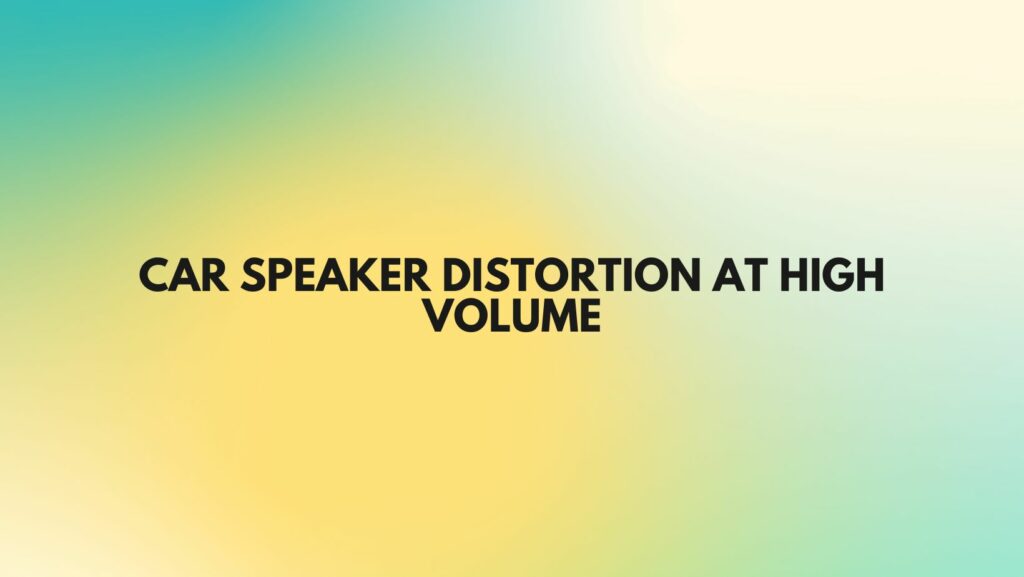Car audio systems have come a long way since the days of crackling AM radios. Modern vehicles are equipped with advanced sound systems that can reproduce music with impressive clarity and power. However, even the best car audio setups can experience speaker distortion at high volumes. In this article, we will explore the causes, effects, and solutions to car speaker distortion at high volume.
I. Causes of Car Speaker Distortion
- Overpowering the Speakers One of the primary causes of speaker distortion in a car audio system is overpowering the speakers. When you turn up the volume beyond the speaker’s rated capacity, it tries to reproduce sounds that are too loud for its design. This can lead to distortion, as the speaker’s diaphragm may not move freely or may even be damaged.
- Low-Quality Audio Sources The quality of the audio source matters greatly. Low-quality audio files or streaming services with low bitrates can introduce distortion before the sound even reaches the speakers. To mitigate this, always use high-quality audio sources.
- Poor Amplifier Matching Mismatched amplifiers can also contribute to distortion. An amplifier that doesn’t match the impedance and power handling capabilities of your speakers can send distorted signals to the speakers, resulting in poor sound quality.
- Speaker Wear and Tear Over time, car speakers can deteriorate due to age and usage. When the speaker components, such as the cone or voice coil, become damaged or worn, it can result in distortion at high volumes.
II. Effects of Car Speaker Distortion
- Reduced Sound Quality The most noticeable effect of speaker distortion is a reduction in sound quality. Music that was once crisp and clear can become muddy and unpleasant to listen to.
- Potential Damage Speaker distortion doesn’t just affect sound quality; it can also damage your speakers over time. Continuously playing distorted audio at high volumes can lead to overheating, coil damage, and permanent speaker failure.
- Listener Fatigue Distorted sound can be physically and mentally fatiguing to listen to for an extended period. This can be particularly problematic during long drives or road trips.
III. Solutions to Car Speaker Distortion
- Use High-Quality Audio Files To minimize distortion from the source, use high-quality audio files with a high bitrate and minimal compression. This ensures that the audio signal sent to the speakers is as clean as possible.
- Match Speakers and Amplifiers Ensure that your speakers and amplifiers are well-matched in terms of impedance and power handling. Consult your car’s manual or a professional installer to find the best components for your setup.
- Set the Gain Correctly Properly adjusting the amplifier gain settings can prevent distortion. Use a multimeter or consult an audio technician to set the gain at the appropriate level for your system.
- Upgrade Your Speakers If your speakers are old or damaged, consider upgrading to high-quality aftermarket speakers that can handle higher volumes without distortion. Make sure they are compatible with your car’s audio system.
- Sound Deadening Adding sound deadening material to your car doors and interior can help reduce vibrations and external noise, improving overall sound quality and reducing distortion.
- Limit Volume Levels The most straightforward solution is to avoid pushing your speakers to their limits. Listen at moderate volumes to preserve sound quality and speaker longevity.
Conclusion
Car speaker distortion at high volume can be a frustrating and potentially damaging issue. However, by understanding the causes, effects, and solutions outlined in this article, you can enjoy high-quality audio in your vehicle without compromising your speakers or your listening experience. Remember that maintaining your audio system and using high-quality components are key to achieving the best sound quality without distortion.


